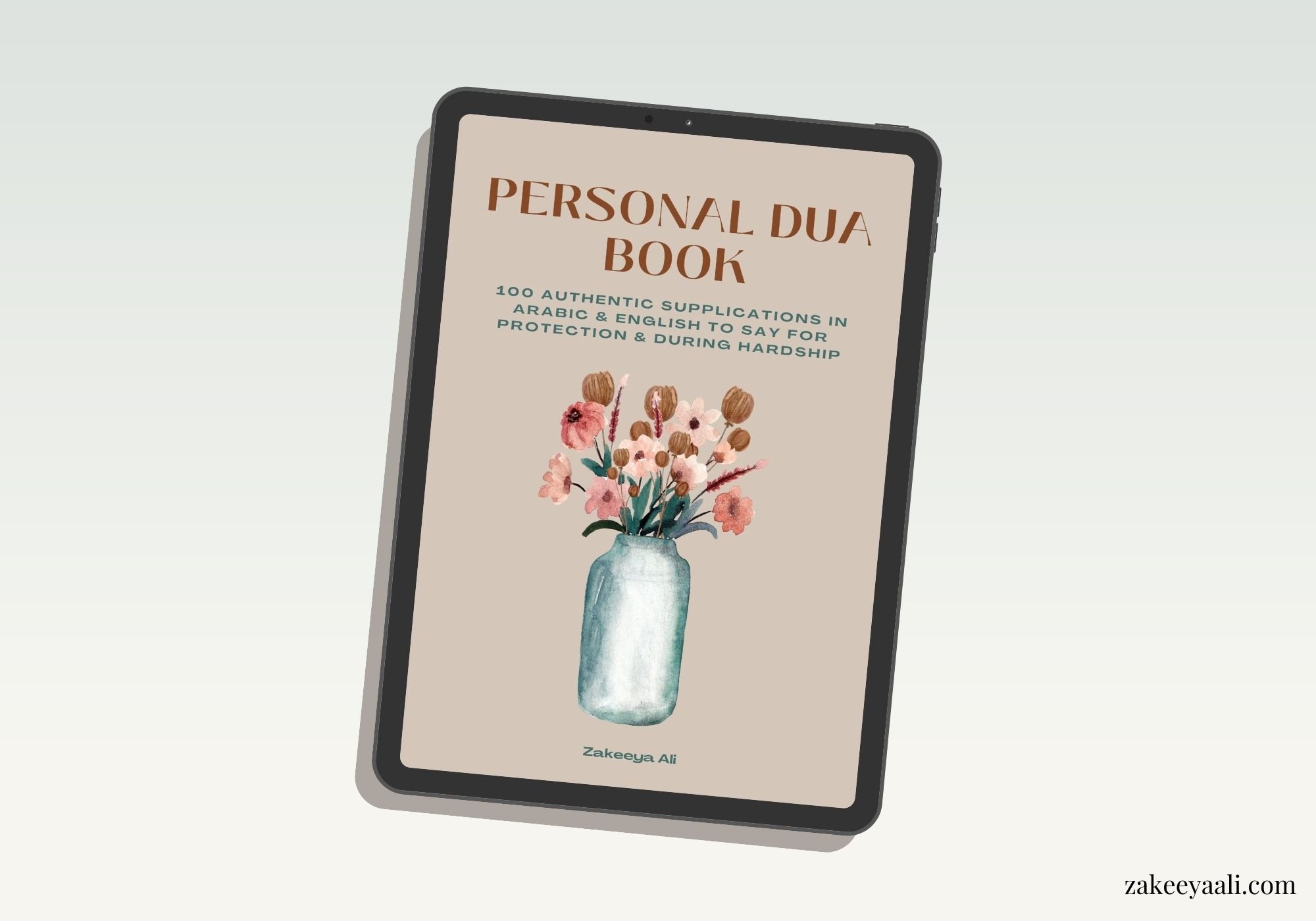A Muslima’s Guide To Tahajjud and Qiyam ul Layl
The tahajjud salat is one of my absolute favorite nawafil (subjugatory) prayers. I began performing this salah during an incredibly traumatic time in my life, and I can honestly say that it saved my sanity and helped me cope. At a time when I felt at a loss for how to handle deep pain and extreme despair, praying tahajjud was my anchor. The Prophet (saw) has said:
“Verily, there is one hour during the (entire) night when any Muslim (submitting to the Will of Allah the Almighty) may call upon Allah and request anything of Him, regardless of whether the matter be worldly or of the hereafter. Allah, the Almighty, will grant and fulfill the request. This is the case every night.” (Muslim).
The Prophet has also mentioned that:
"The best prayer after the obligatory prayers is the night prayer." (Muslim)
When any of my family and friends go through extenuating circumstances, I urge them to pray tahajjud, as I know how much it helps me in my life. Until now, I have tried to perform tahajjud daily because I have seen how it brings peace, fulfillment, contentment, and barakah to my day. Of course, when I don't pray tahajjud, I feel sad, but I don't beat myself up and lose hope. I just make the intention to keep trying the next day. The Prophet's PBUH wife Ayisha R.A. narrated,
“Do not ever stop praying Qiyaam. The Prophet PBUH never ceased praying it. When he was sick or weak, he prayed sitting.” (Bukhari and Muslim)
The Prophet PBUH said:
“You should pray Qiyaam al-Layl, for it is the habit of the righteous people who came before you, and it will bring you closer to your Lord, expiate for bad deeds, prevent sin, and expel disease from the body.” (At-Tirmidhi and Ahmad)
Presently, I find it manageable to get up earlier for fajr salah, perform tahajjud, say my duas, and then pray fajr. You can also perform tahajjud earlier and go back to sleep until fajr, or if nothing else, pray it before going to sleep as it is better than not doing it at all. Also, I began performing two rakats only for fear that I will find it burdensome and not keep to it, but as soon as I feel my habit is strong, I will add more rakats in following the tradition of the Prophet (saw).
"If you get up for night prayer, start with two short rakats." (Muslim)
I find tahajjud salah is an ideal time as a busy Muslim for contemplation because things that busy your heart are absent, so your concentration and understanding is better. This is one reason I love this time of the morning because I will not be interrupted by my children and duties, and I find solitude, which helps start my day with calm. I'm also able to focus on my dua and ask for the things I need the most from Allah SWT because at this time of the night, Allah is the closest, and He wants to answer your dua. It's a time when the sky is open, supplications are responded to, the needs of those who ask are fulfilled, and it is a shield from sin. The Prophet PBUH said:
"The Lord descends every night to the lowest heaven when one-third of the night remains and says: 'Who will call upon Me, that I may answer Him? Who will ask of Me, that I may give him? Who will seek My forgiveness, that I may forgive him?" (Bukhari, Muslim)
How To Pray Tahajjud Salah
Step 1
Find the optimal time to pray tahajjud - you can divide the night into thirds, then the final middle third is most virtuous. (Haskafi, Durr al-Mukhtar). If one divides the night in half, then the second half is more virtuous. (ibid). It is preferable to divide the night into six portions; one should sleep in the first three portions, worship and perform the tahajjud prayer in the fourth and fifth, then go to sleep in the sixth, as this is the salah of Dawud A.S.
Step 2
Make your intention for your voluntary prayer (to pray tahajjud).
Step 3
Make your intention for why you are praying (for the sake of Allah).
Step 4
Perform the minimal night prayer, which is two rakats. However, the recommended rakats are 8 (as the Prophet's PBUH practice), so it is recommended to start with two short rakats. Also, a lengthier recitation in tahajjud is superior to a larger number of rakats prayed.
Step 5
Even though the tahajjud salah can be made after isha salah, the full reward mentioned in the Quran and Hadiths refers to worship preceded by sleep. This is also understood from the meaning of tahajjud - which is the struggle to rid oneself of sleep. (Ibn Abidin, Radd al-Muhtar).
Step 6
Thereafter, I usually say my duas of the day for any problems affecting my family and me the most.
It should be noted that the time to perform the tahajjud prayer starts after isha salah and ends by fajr salah, so if you perform any voluntary prayers after fajr time, it will not be considered as tahajjud prayers. Also, once tahajjud becomes a habit, it is disliked to leave it unless there is an excuse. The Prophet PBUH said,
"O Abdullah! Do not be like so-and-so. He used to pray at night and then left it." (Bukhari and Muslim).
If you find that the tahajjud is too difficult, it is good to reflect on the words of Ibn Mas'ud (Allah be pleased with him) when he was told,
"I cannot pray at night." and he said, "Your sins have prevented you."
Tahajjud or Qiyam ul Layl?
Qiyaam al-layl means "standing in the night" and pertains to when you spend some part of the night (even if only one hour) in prayer, recitation of the Qur'an, in remembrance of Allah (dhikr), or any acts of worship after isha until fajr. Tahajjud salah, on the other hand, though considered qiyam ul-layl, is the actual nawafil prayer performed after isha and before fajr. Thus tahajjud is qiyaam al-layl, but qiyaam also encompasses other acts of worship during the night instead of only the tahajjud salah.
The scholars have informed us that performing nawafil prayers in the night has more blessings than in the day because it is more concealed, closer to sincerity, and harder on your nafs. This is due to nighttime being when you are most tired and in a state of a deep sleep, and to leave your slumber despite your desire to sleep is a tremendous struggle (Mujahada).
"O! The night vigil is (a time) when impression is more keen and speech more certain. Lo! You have by day a chain of business. So remember the name of your Lord and devote yourself with a complete devotion." (Quran 73:6-7).
"Establish worship at the going down of the sun until the dark of the night, and the Qur an at dawn. Lo! the Qur an at dawn is ever witnessed. And some part of the night awake for its recital, as voluntary worship for you. It may be that your Lord will raise you to a praised estate." (Quran 17:78-79)
Read more at www.seekershub.org
I end by imploring you to try the tahajjud salah (if you haven't yet) because it will help you more than you can imagine inshAllah. Read about the other nawafil prayers that I love to implement in my life as a mom to help make our difficult days run smoothly. Read A Muslim's Guide to Istikhara and A Muslim's Guide to Salat ul-Haja and get free printables of the accompanying duas!
Salam, I’m Zakeeya!
I believe that making our homes a safe haven for our families, as well as being a wife and mother, brings us great blessings, contentment, and benefits to society as a whole. Since 2011, I've been dedicated to assisting Muslimas in finding tranquility in their roles, taking better care of themselves, and achieving inner peace. Our journey in this world is not an easy one, but I pray the tools and guidance I offer will help you face life's challenges with more gratitude and mindfulness. Join me as I share wifehood, motherhood, homemaking, and lifestyle solutions that make life more fulfilling for you as a woman! Read more about me here.
Do You Need Support as a Sister?
If you are struggling in your life and need professional support for personal development, you can book a one-on-one mentoring session with me to get tailored advice.
Do You Want to Instill Your Daily Dose of Dua?
Order my handy dua ebooks, which are available in an Arabic/English or English only version, and contain 100 authentic duas to say for protection and during hardship.





